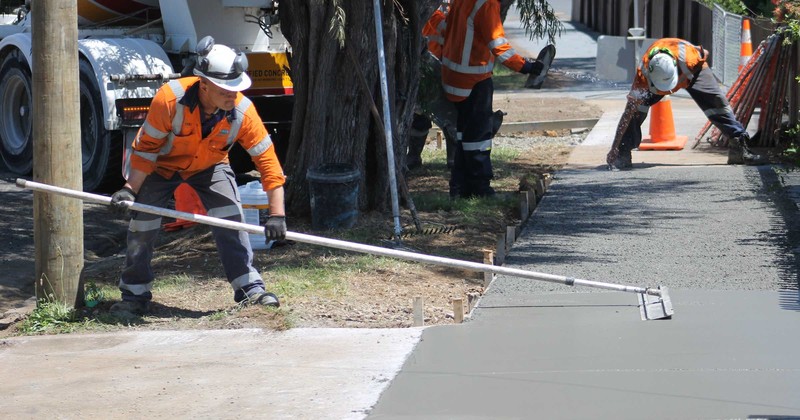Driveway installers play a crucial role in the construction and maintenance of driveways for residential, commercial, and public properties. Their duties encompass a range of tasks, from initial planning and site preparation to the final installation and finishing touches. Let us discuss the primary responsibilities of driveway installers: –
- Site Assessment and Planning – Before commencing any installation project, driveway installers assess the site and analyze various factors such as soil composition, drainage requirements, and topography. They consider the client’s preferences, budget, and any existing infrastructure to develop a suitable plan for the driveway installation.
- Excavation and Ground Preparation – Driveway installers are responsible for excavating the designated area, removing any existing pavement, vegetation, or debris. They ensure the ground is properly leveled and compacted, making it stable for the installation process. If necessary, they may also incorporate additional materials, such as geotextile fabric or gravel, to enhance stability and prevent soil erosion.
- Material Selection and Procurement – Based on the project specifications and client preferences, driveway installers select appropriate materials for the driveway construction. This may include concrete, asphalt, pavers, gravel, or other materials. They calculate the required quantity, coordinate with suppliers, and ensure the timely delivery of materials to the worksite.
- Installation Techniques – Driveway installers possess expertise in various installation techniques, depending on the chosen materials. For instance, they are skilled in pouring and finishing concrete, laying asphalt, or arranging pavers in intricate patterns. They use specialized tools and equipment to achieve precise dimensions, smooth finishes, and proper drainage for the driveway.
- Edging and Borders – To enhance the aesthetic appeal and structural integrity of driveways, installers incorporate edging and borders. These elements may consist of materials like bricks, stones, or precast concrete curbs. Driveway installers ensure that the edging is securely installed and aligned with the overall design of the property.
- Drainage Considerations – Proper drainage is essential for preventing water buildup on driveways, which can lead to erosion, potholes, and other issues. Driveway installers incorporate drainage solutions such as slope design, gutter systems, and French drains to divert water away from the driveway and surrounding areas. They carefully plan and implement these measures to ensure effective water management.
- Finishing Touches – Once the main construction is complete, driveway installers pay attention to the finishing touches. This includes sealing the surface, applying protective coatings or paints, and adding decorative elements if desired by the client. They meticulously inspect the driveway to ensure it meets quality standards, is safe for use, and aligns with the client’s expectations.
- Maintenance and Repair – Driveway installers may also provide maintenance and repair services for existing driveways. This includes tasks such as crack sealing, pothole patching, resurfacing, and resealing. They assess the condition of the driveway, recommend appropriate solutions, and perform the necessary repairs to restore functionality and appearance.
Conclusion – Driveway installers are responsible for various tasks including site assessment, excavation, material selection, installation techniques, drainage considerations, finishing touches, maintenance, and ensuring safety and compliance. Their expertise and attention to detail are vital for creating durable, functional, and visually appealing driveways that meet the needs and expectations of their clients.

